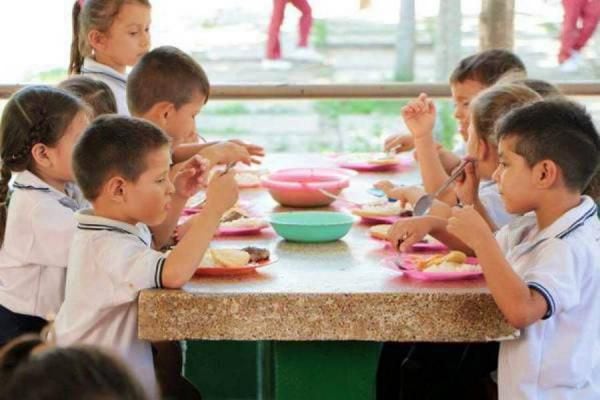
A total of nine thousand food supports were delivered in recent days by the Municipal Mayor's Office of Tenjo, in the department of Cundinamarca, for children and adolescents, who are part of the different educational institutions in the region.
Due to the difficulty that the Government faced at the beginning of the year in contracting the School Food Program (PAE), the administration assigned a value of more than 240 million pesos to this sector of the population that demands effective solutions in terms of food development.
For the current secretary of educational development of the mayor's office of Tenjo, Ismael Mahecha, coverage of the PAE impacted 13 educational institutions as well as its 17 headquarters located in different sectors of the municipality that received the aid in the last days of March.
According to Mahecha, supplements are part of a package consisting of more than 20 products, some of which provide essential nutritional values for the physical development of children and adolescents in Tabio.
Parents and students from these institutions assured that this initiative sets a standard in the region and sets an example of good food supplements supported by a Municipal Mayor's Office.
It should be noted that these food deliveries, framed in the School Meal Plan, are among the examples to be highlighted in a controversial distribution landscape in Colombia, which has been the cause of complaints by parents.
PAE irregularities in different regions of Colombia

As mentioned earlier, Antioquia and Bolivar have filed cases of complaints about the terrible portions of food their children receive in educational institutions.
According to the allegations, they would have sent only one banana, in some cases a green banana, and a bread in the food rations, not complying with the dairy product they have to provide to educational institutions.
On the non-compliance, the Cartagena District Education Secretariat indicated that the operators had reported the non-compliance one day before the delivery, in the evening hours: “By e-mail, the operators reported, at 10:00 p.m. on March 15, that they would not be able to deliver the complete rations of course non-compliance by its dairy suppliers”.
According to the local newspaper El Colombiano, the responses to these complaints from operators have not been what would be expected from agents who distribute food for children and adolescents in other regions of Colombia.
According to that media outlet, when denouncing that the plate of food was not what was expected for minors in one of the affected schools, an operator of the school restaurant said: “Be grateful that they give you something to eat. When you're poor, you eat what you're given.”
Among the most recurrent complaints are poor disposal of food waste, unbalanced portions of food, delays in service and also poorly prepared products.
For its part, the Personería de Cartagena assured that it was not an isolated event, but on the contrary it has happened on other occasions throughout this year.
Regarding these complaints, nutritionist Gisela Pedraza told El Colombiano that photos posted through social networks show that the dishes are poorly served. In addition, he indicated that school restaurants must have a basic sanitation plan “to ensure safety and that food is safe for students to consume.”
KEEP READING:
Últimas Noticias
Debanhi Escobar: they secured the motel where she was found lifeless in a cistern
Members of the Specialized Prosecutor's Office in Nuevo León secured the Nueva Castilla Motel as part of the investigations into the case

The oldest person in the world died at the age of 119
Kane Tanaka lived in Japan. She was born six months earlier than George Orwell, the same year that the Wright brothers first flew, and Marie Curie became the first woman to win a Nobel Prize

Macabre find in CDMX: they left a body bagged and tied in a taxi
The body was left in the back seats of the car. It was covered with black bags and tied with industrial tape
The eagles of America will face Manchester City in a duel of legends. Here are the details
The top Mexican football champion will play a match with Pep Guardiola's squad in the Lone Star Cup

Why is it good to bring dogs out to know the world when they are puppies
A so-called protection against the spread of diseases threatens the integral development of dogs




